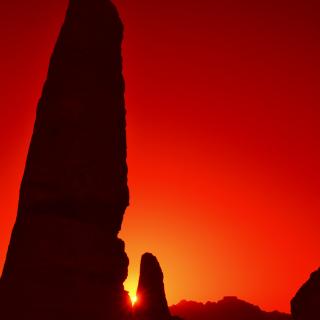Belmonte, Juan Antonio
Bibliographical reference
Cosmovisiones
Advertised on:
9
2024
Refereed citations
0
Description
Michael Hoskin is the name of a scholar whose memory will remain forever linked to cultural astronomy. Professor of History of Science at the University of Cambridge, in the United Kingdom, where he first specialized in Isaac Newton and his 'Principia'. Later on, he would devoted a great deal of his efforts to the family of William Herschel, with special emphasis on the figure of Caroline Herschel, sister of the discoverer of Uranus and pioneer woman in the world of astronomy, about whom he wrote several books. In 1969, a London publisher asked Hoskin if there was any field of the history of science that was not yet covered by the specialized literature This led to the creation of 'The Journal for the History of Astronomy' [JHA], which Hoskin would edit for 45 years and remains a reference journal in the field. However, his relationship with cultural astronomy, as we conceive it today, began in 1981 when he was President of the IAU Commission on the History of Astronomy. Familiarized with the emerging effervescence in the field, he convened in the university city of Oxford the first of the series of conferences in this discipline that would eventually bear the name of this town, of which the one recently held in La Plata (Argentina) was its 12th edition. A pioneer in archaeoastronomy studies in the Mediterranean basin, his work took him from the island of Cyprus to the Iberian Peninsula and from Brittany to the foothills of the Atlas Mountains, measuring more than two thousand cyclopean and megalithic monuments of all kinds. His work in Sardinia and the Atlantic façade of the Iberian Peninsula is a reference in the field. For three decades, he strove to make the archaeological community aware of the benefits of archaeoastronomy, as one more archaeometry, highlighting its usefulness. Professor Michael Hoskin's connection with the town of Antequera (Spain) and its megalithic monuments, Menga, Viera and El Romeral goes beyond all his research work reflected in 'Tombs, temples and their orientations' his book of reference in the field. His person was chosen as a standard of know-how and of how well-done science can serve to revalue the cultural heritage of a country. The author of this homage interacted for more than a quarter of a century with this Cambridge University professor, who made megalithic monuments one of his vital objectives. This is the story of that relationship while building a paradigm that has turned the Dolmens of Antequera and Talayotic Menorca into World Heritage Sites.
Related projects

Archaeoastronomy
The main objective of this project is to study the importance of astronomy as a fundamental part of human culture and civilization from Paleolithic to the present day. Our interest is mainly devoted to the people of the ancient Mediterranean cultures from the Atlantic to the Middle East, with a special dedication to Spain, its geographical
Juan Antonio
Belmonte Avilés